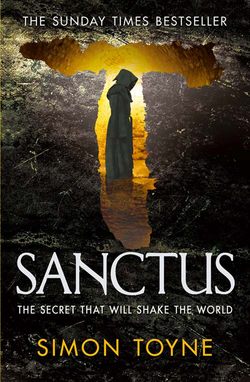Читать книгу Sanctus - Simon Toyne, Simon Toyne - Страница 11
5
ОглавлениеThe spring sun rose early and clear, casting long shadows down the valley. At this time of year it rose above the red Taurus peaks and shone directly down the great boulevard to the heart of the city where the road circling the Citadel picked out three other ancient thoroughfares, each marking a precise point of the compass.
With the dawn came the mournful sound of the muezzin from the mosque in the east of the city, calling those of a different faith to prayer as it had done since the Christian city had fallen to Arab armies in the seventh century. It also brought the first coach party of tourists, gathering by the portcullis, bleary-eyed and dyspeptic from their early starts and hurried breakfasts.
As they stood, yawning and waiting for their day of culture to begin, the muezzin’s cry ended, leaving behind a different, eerie sound that seemed to drift down the ancient streets beyond the heavy wooden gate. It was a sound that crept into each of them, picking at their private fears, forcing eyes wider and hands to pull coats and fleeces tighter round soft, vulnerable bodies that suddenly felt the penetrating chill of the morning. It sounded like a hive of insects waking in the hollow depths of the earth, or a great ship groaning as it broke and sank into the silence of a bottomless sea. A few exchanged nervous glances, shivering involuntarily as it swirled around them, until it finally took shape as the vibrating hum of hundreds of deep male voices intoning sacred words in a language few could make out and none could understand.
The huge portcullis suddenly shifted in its stone housing, making most of them jump, as electric motors began to lift it on reinforced steel cables hidden away in the stonework to preserve the appearance of antiquity. The drone of electric motors drowned out the incantations of the monks until, by the time the portcullis completed its upward journey and slammed into place, it had vanished, leaving the army of tourists to slowly invade the steep streets leading to the oldest fortress on earth in spooked silence.
They made their way through the complex maze of cobbled streets, trudging steadily upwards past the bath houses and spas, where the miraculous health-giving waters of Ruin had been enjoyed long before the Romans annexed the idea; past the armouries and smithies – now restaurants and gift shops selling souvenir grails, vials of spa water and holy crosses – until they arrived at the main square, bordered on one side by the immense public church, the only holy building in the entire complex they were allowed to enter.
Some of the dopier onlookers had been known to stop here, gaze up at its façade and complain to the stewards that the Citadel didn’t look anything like it did in the guidebooks. Redirected to an imposing stone gateway in the far corner of the square, they would turn a final bend and stop dead. Grey, monumental, immense, a tower of rock rose majestically before them, sculpted in places into ramparts and rough battlements, with the occasional stained-glass window – the only hint at the mountain’s sacred purpose – set into its face like jewels.
